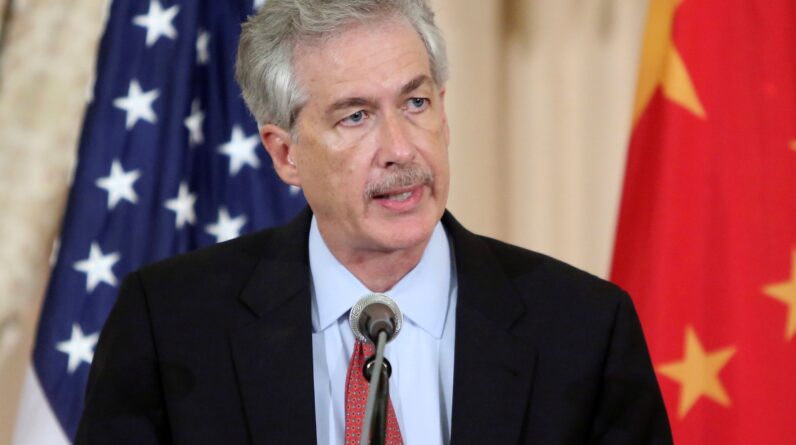
CIA Director William Burns stressed the importance of keeping communication open between China and the US.
In an attempt to improve communication between Beijing and Washington, CIA Director William Burns visited China last month for talks with his Chinese counterparts, a US official said.
Burns’ visit in May, which was first reported by The Financial Times, comes as Washington tries to ease tensions with Beijing and restore lines of communication amid fears that miscommunication between the two global powers could lead to conflict accidentally
News of the visit to China comes as US President Joe Biden’s administration has pushed to restore communication and schedule meetings between several senior officials in Washington and Beijing.
“Last month, Director Burns traveled to Beijing where he met with Chinese counterparts and emphasized the importance of keeping lines of communication open in intelligence channels,” a US official told the Reuters news agency.
Burns met with Chinese intelligence officials and not with any political or foreign policy leadership in Beijing, according to a second person familiar with the visit who also spoke on condition of anonymity.
The CIA, which does not regularly announce such visits, declined to comment on reports of Burns’ trip to China.
Ties between Beijing and Washington have come under severe strain in recent months over issues ranging from Taiwan and China’s human rights record to Beijing’s growing military activity in the South China Sea and close relations with Russia.
Washington has accused China of considering providing military aid to Moscow in support of its invasion of Ukraine. China has denied these claims.
Some critics of the Biden administration have questioned the value of Washington’s overtures to Beijing, arguing that decades of engagement have failed to change China’s approach on a range of issues, including trade, security and human rights.
US Secretary of State Antony Blinken postponed a planned trip to China in February amid a diplomatic storm after the downing of an alleged Chinese spy balloon that flew through northern airspace American and on sensitive military sites.
Also on Friday, US Defense Secretary Lloyd Austin shook hands with China’s Minister of National Defense Li Shangfu on the sidelines of a security summit in Singapore, but the two did not have an “exchange substantial,” the Pentagon said.
China earlier declined a formal meeting between Austin and Li, who is under US sanctions, during the Shangri-La security summit in the coming days.
In 2018, Washington imposed sanctions on the Chinese defense ministry’s equipment development department (EED) and its then-director Li, over the purchase of missiles and fighter jets from Russia.
The sanctions led to a US visa ban and barred EED and Li from transacting with the US financial system.
Speaking at the summit on Saturday, Austin said dialogue between the US and China was “essential” and would help avoid miscalculations that could lead to conflict.
“The United States believes it is opening lines of communication with the People’s Republic of China [PRC] are essential, especially among our defense and military leaders,” Austin said in remarks at the summit.
“The more we talk, the more we can avoid misunderstandings and miscalculations that can lead to crisis or conflict,” he said.
Separately, White House National Security Adviser Jake Sullivan said Friday that the US wanted dialogue with China “without preconditions” on nuclear arms control issues, but that Beijing remained unwilling.
“Simply put, we have not yet seen the willingness of the PRC to compartmentalize strategic stability from broader issues of the relationship,” Sullivan said in a speech to the Arms Control Association, noting that this it had been the basis of nuclear and strategic security for decades.
“That is why we are also prepared to engage with China without preconditions, helping to ensure that competition is managed and that competition does not come into conflict,” he said.
“Let’s see what the PRC decides to do,” he added.
[ad_2]
Source link





